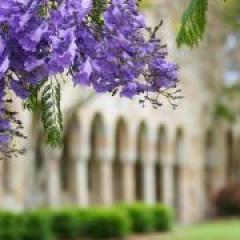Masters of Heritage Management Student Dissertation presentations: Narelle Lont, Shania Dolan and Chris Clark
Please come along to support our Masters of Heritagement Management students as they present the research component of their assessment for completion of their Masters.
Shania Dolan
TITLE: Protecting Cultural Heritage Against Non-State Armed Groups. Assessing the applicability and effectiveness of international laws in the case of Timbuktu, Mali.
ABSTRACT:
With the increasing rate of non-state armed groups’ intentional attacks upon significant cultural sites during non-international armed conflict, concerns are directed towards the usefulness of the existing instruments provisions in regulating these modern forms of conflict. These concerns were tested against a recent case of asymmetric warfare employed by radical Islamic armed groups in Mali in 2012. The international laws seem applicable to non-international conflicts and technically binding on non-state actors. Furthermore, prosecution mechanism entrenched in these legal instruments proved effective in bringing an Islamist leader responsible for the destruction of Timbuktu to justice in 2016. However, while prosecution is important prevention is better: once significant cultural property is lost it can never be replaced. The other problems highlighted by the Mali Conflict were the effectiveness of the state’s employment of preventative safeguarding measures and the difficulties in effectively imposing legal obligations upon the radical Islamists who only considered themselves bound by their faith and political agendas. This thesis proposes that the most viable method of addressing these issues is by improving ratification of the 1999 Second Protocol which imposes enhanced safeguarding obligations upon states to prevent destruction upon their cultural property by non-state actors, and includes monitoring and sanctioning mechanisms for more effective implementation of these measures.
Chris Clark
TITLE: Handling the heritage of a non-event: The heritage management of Brisbanes WWII air-raid shelters.
ABSTRACT:
I examine the current heritage management of Brisbane’s World War Two air-raid shelters. Originally numbering over 260, the remnant surface civil defence structures populate Brisbane’s modern urban landscapes as public amenity -- namely as park shelters, bus stops and public toilets. Unlike places of war memorial, Brisbane’s air-raid shelters stand as an unpretentious and uncompromising link to a significant formative period in the cities recent past. While acknowledged on both Local and State Heritage Registers, their current management is lacklustre. This discussion will revolve around data and conclusions found in the dissertation which answered how can Brisbane’s World War Two air raid shelters be managed for their heritage significance? The presentation will include objective information regarding the types and numbers of surviving air-raid shelters, their locations, current condition and varying levels of legislative protection. Moreover, it will detail the social significance of these structures and its profound impact upon contemporary community identity through gender equality, American influence and the creation of a cultural landscape of fear which is currently unacknowledged. The contradictions in Queensland and Brisbane’s legislative instruments and current heritage management in comparison to the Burra Charter are discussed, indicating the need for interpretation to make the cultural significance of the air-raid shelters readily apparent. Through appropriate, holistic heritage management, Brisbane’s air-raid shelters will continue to provide an honest evocation of the cities WWII heritage.
Narelle Lont
TITLE: Heritage in a ‘New World City’: adaptive reuse of Brisbane’s heritage buildings.
ABSTRACT:
With new development taking place in all corners of the city, Brisbane’s quest to become a ‘New World City’ by 2043 is being realised. Heritage buildings are at the mercy of our local government and increasingly being lost to development. In response to this concern, there is an emerging interest in adaptive reuse of heritage buildings. Repurposing heritage buildings with a viable, new use has far reaching environmental, social and economic benefits in addition to conserving important buildings and heritage values for future generations. Brisbane’s Powerhouse is used as an example to demonstrate ‘best practice’ adaptive reuse to contrast with the potential of the Spring Hill Reservoirs, which currently used as an underground entertainment venue, will close indefinitely in 2019. Within a best practice adaptive reuse context, Brisbane’s legislative framework including strategies, policies and plans have been reviewed to determine the local government’s degree of commitment to adapting heritage buildings for reuse. While the planning scheme heritage overlays are efficient in protecting significant places, inadequacies lie within the strategic framework for Brisbane’s future development. Beneficial avenues involve strengthening collaboration with heritage architects and the National Trust of Queensland, in addition to increasing the availability of adaptive reuse resources and Conservation Management Plans. Although buildings are being adaptively reused, Brisbane has a great opportunity to actively promote and encourage the practice more frequently to conserve our historic buildings that provide a glimpse into the past and lend character to Brisbane.
Presenters
Narelle Lont, Shania Dolan and Chris Clark, School of Social Science, The University of Queensland.
About Archaeology Working Papers
The Working Papers in Archaeology seminar series provides a forum for dissemination of archaeological research and ideas amongst UQ archaeology students and staff. All students are invited to attend the series and postgraduate students, from honours upwards, are invited to present their research. The aim is to provide opportunities for students, staff and those from outside UQ, to present and discuss their work in an informal environment. It is hoped that anyone interested in current archaeological directions, both within and outside the School and University, will be able to attend and contribute to the series.


